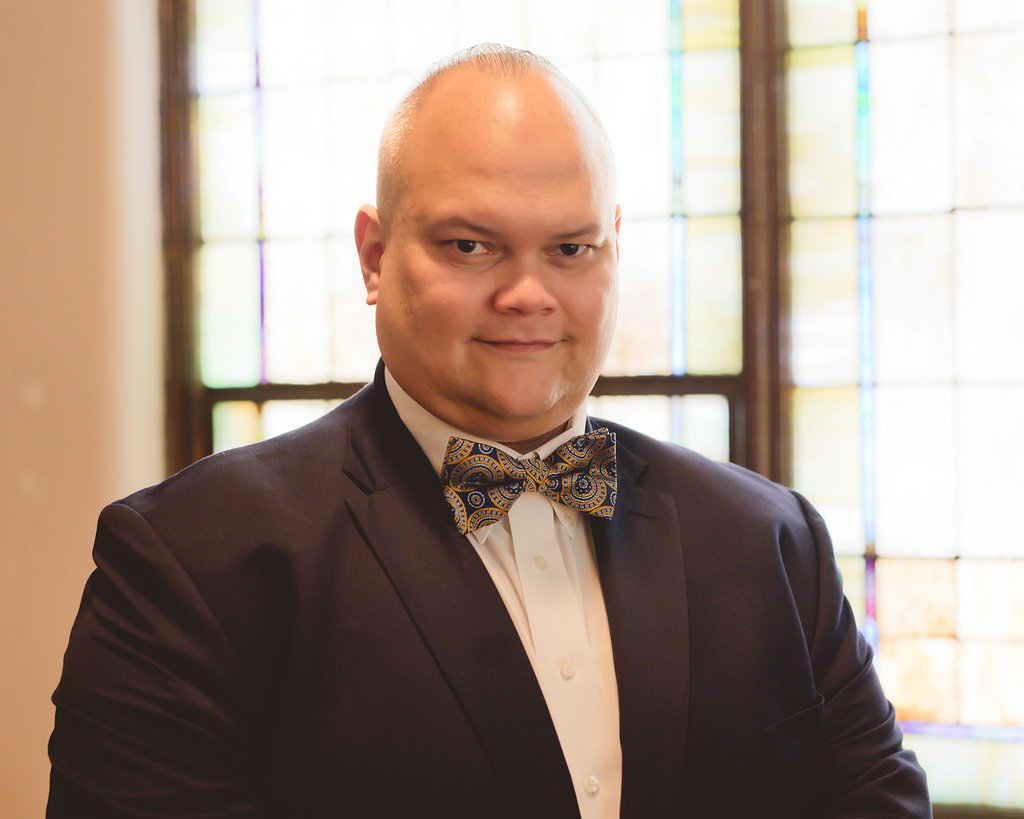 The Disciples Leadership Institute (DLI) brings together emerging Disciples leaders, seeking to deepen understanding and develop relationships across perceived boundaries of race, culture and language. This month a past DLI participant, Richie Sanchez, who has just recently been called to serve as the Regional Minister for the Pacific Southwest Region, shares what he gained from the DLI program and how it continues to influence his life and calling.
The Disciples Leadership Institute (DLI) brings together emerging Disciples leaders, seeking to deepen understanding and develop relationships across perceived boundaries of race, culture and language. This month a past DLI participant, Richie Sanchez, who has just recently been called to serve as the Regional Minister for the Pacific Southwest Region, shares what he gained from the DLI program and how it continues to influence his life and calling.
On his current ministry:
“I currently serve as Interim Regional Minister and President for the Christian Church in Arizona. While the region is without a settled minister and in a time of transition, I work to meet the needs of our local congregations, clergy and partners. I’ve been able to care for several congregations in search of a new minister. I helped a congregation close it visible worship life and find a resurrection story into a new ministry center in Glendale, AZ. Currently, we’re working to graduate a group of Spanish speaking clergy and lay leaders in the Hispanic Ministries Certificate program at Lexington Theological Seminary. These efforts will provide more theologically trained leaders for our own future story in the state of Arizona.”
On memories from participating:
“I most cherish the memory of the holy spaces that were purposed and made priceless for our ashes and beauty. I remember the willingness of participants to share their stories and engage in peer learning. Participants were unafraid to be vulnerable about past or current struggles and difficulties in ministry or life. The DLI program leaders and community gathered were creative, adaptable, supportive and caring. The spaces were built into an environment that allowed many of the participants to embrace a reflective process in order that they might find beauty from their ashes.
I had the privilege to preach for DLI’s closing worship and will never forget that the hardest part would be before us. We had to take with us what we learned and apply it to our lives, our near and distant circles. To become leaders with courage that would champion the intersections of ministry, culture and life. The call was to serve no longer only “the team” we may have represented or best identified with, but to be daring enough to change our team colors for one of unity and welcome for all.”
On important learnings:
“This program offered me a non-judgmental space to reflect, be amongst peers and unmask some wounding perceptions. I developed better listening skills and ways to make time for someone else’s story or journey. I enjoyed being amongst Disciples who I had only known in passing or had never met. We were graced with time to meet, break bread, worship together, learn from each other, finding and celebrating commonalities from our journeys. I gained admiration for HELM’s participation in processes and programs such as these to help Disciples discover the depth, breadth, heights and width of our common faith.”
On how it shaped his sense of call:
“From this experience, it is my sense that those who desire to pursue ministry as a calling or vocation should do so from a place of deep authenticity. An important aspect of being a leader is the ability to encourage honest and authentic relationships across several human imposed and perceived boundaries. This is made possible when ministers have experienced honest and authentic relationships themselves. Ministers should search for and find spaces or communities that engage in struggles and difficulties in non-judgmental ways. If these spaces cannot be found, then purposely help create them.
DLI helped me to further clarify my calling in ministry as a unifier, a bridge builder between cultures and a bridge from time to time (even, though bridges can be trampled). I have embraced the idea that authenticity in leadership helps unmask perceptions and allows us to extend an openness so that matters of difference in yourself and others might dissipate. This approach provides others with reasons to share time for dialogue and help discover unseen intersections, changing our current context and church climates. It is authenticity that will allow ourselves to be known and be loved.”
